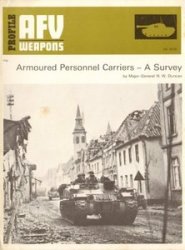You have heard of the successful attempt which Lord Charles de Blois, with other lords of France, made upon the duchy of Brittany—how the men of Nantes betrayed the Earl of Montfort into their hands, and Lord Charles became possessed of that city. But though the Earl of Montfort
Was a prisoner, the countess was at large, and being most valiant woman, she resolved to resist the interest of France in Brittany. Accordingly, she sent Sir Amauri de Clisson to King Edward in England to entreat his assistance, upon condition that her young son should take for his wife one of the king’s daughters, and give her the title Duchess of Brittany. When Sir Amauri de Clisson arrived Edward was in London feasting the Earl of Salisbury, who had just returned from prison; however, he lost no time in giving him an audience, and then ordered Sir Walter Manny to collect an army, and make every possible haste to carry assistance to the countess, who was at Hennebon, besieged by the forces of Lord Charles de Blois. For several days Lord Charles and his men had been encamped before the place, and were unable to make any effect upon it; the barriers resisted their utmost efforts. On every attack the countess, who had clothed herself in armour, and was mounted on a war-horse, galloped up and down the streets entreating and encouraging inhabitants to make a brave resistance; at her orders the ladies and other women carried paving stones of the streets to the ramparts, and threw them on the enemy. She also had pots of quick-lime brought to her for this purpose.
During the siege the countess performed a very gallant action; she had ascended a high tower to see how her people behaved, and having observed that all the lords and others of the enemy had quitted their tents, and were come to the assault, she immediately descended, mounted her horse, and having collected 300 horsemen about her, sailed out of Hen-nebon by a gate that was not attacked, and, galloping up to the tents, cut them down and set them on fire, without any loss to her own party. As soon as the French saw their camp in fire they left off assaulting the town, and hastened thither; but the countess and her little company made good their escape to Brest. Here she got together five or six hundred men, all well armed and mounted, and leaving Brest at midnight, went straight to Hennebon, which she reached about sunrise; the gates of the castle opened to receive her, and she entered in triumph amidst sounds of trumpets and other warlike instruments, to the great astonishment of the French, who knew nothing of her arrival, and who began arming themselves for another attack upon the town. This attack was very severe, and lasted till past noon. The French lost more than their opponents, and the Lord Charles, finding that much time was wasted, determined to leave Lord Lewis of Spain before Hennebon, whilst he went to besiege the castle of Aurai and other places. Lord Lewis kept up
The siege vigorously, and made such progress by battering the walls with his engines, that the courage of those within began to falter; and all, with the exception of the countess, were wishing to surrender. Indeed, negotiations to that effect were actually going on, when the countess, looking out of a window towards the sea, exclaimed with joy, “I see the succour which I have so long expected.” The town’s-people ran to the ramparts, and saw a numerous fleet of great and small vessels, well-trimmed, making all the sail they could towards Hennebon, which they imagined must be a fleet from England; so long detained by tempests and contrary winds; and they were right in their conjectures, for in a few hours the English came on shore. No sooner had they landed than Sir Walter began in right earnest to assist the countess against the French. He inquired of her the state of the town, and of the enemy’s army, and while engaged in conversation he chanced to look out the window, and seeing a large machine belonging to the enemy near the wall, vowed he would destroy it at once if any would second him. Two valiant knights were ready in the moment, and having armed themselves, they sallied quietly out of the city gates, taking with them 300 archers. These shot so true and well, that the machine was soon cleared of its defenders; the greater part of them were slain, and the large machine itself forthwith cut down and pulled to pieces. The gallant band then dashing in among the tents and huts, set fire to them, and killed and wounded many before the enemy was in motion. After this they made their retreat, but the French followed like madmen. Sir Walter seeing them, exclaimed, “May I never be embraced by my mistress if I enter the castle or fortress before I have unhorsed one of those gallopers,” and so saying he turned, as did his companions—they spitted several coursers, and unhorsed many; after which they made good their escape to the castle, where the countess received them with a most cheerful countenance, and kissed Sir Walter and all his party, one after another, like a noble and valiant dame.
Source: Jean Froissart. The Chronicles of England, France, and Spain. Bk. II, pp. 34-36.




 World History
World History









